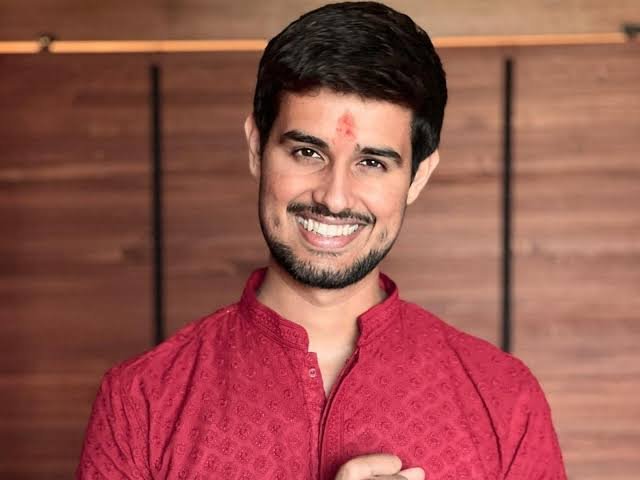In the case of Indian politics or social media, it seems that critique can often become defamation, with spasms of legal tussles inevitably arising to claim center stage in public attention.
Table of Contents
One of the recent incidents is the controversy between YouTuber and social commentator Dhruv Rathee and BJP leader Suresh Karamshi Nakhua. But this legal battle has also demarcated battle lines in opinions over freedom of speech versus the responsibilities that come with a large online presence.
Who is Dhruv Rathee?
Dhruv Rathee is a name ringing in the ears of millions of Indians who consume their quota of news and political commentary from social media. With a huge following on almost every social media platform, be it YouTube, Rathee has carved a niche for himself as a fierce critic of the present regime and its policies.

His videos—most of them deconstructing political events, government decisions, and social issues—make him one of the most prominent voices among India’s youth and those seeking an alternate discourse to that propounded by the mainstream media narratives.
The Controversy
The latest controversy erupted when Rathee released a video titled “My Reply to Godi Youtubers | Elvish Yadav | Dhruv Rathee,” which has since become the center of a legal storm.
Rathee, in the video, addressed the criticisms against him from other YouTubers, including Elvish Yadav, and made certain remarks about BJP leader Suresh Karamshi Nakhua. According to Nakhua, these comments were defamatory and damaging to his reputation.
The Defamation Case
Suresh Karamshi Nakhua, a spokesperson of the BJP’s Mumbai unit, took umbrage at the portrayal provided by Rathee and filed a criminal defamation suit.
According to Nakhua’s counsel, it was Rathee’s video that portrayed him as a “violent and abusive troll,” a characterization they say is entirely without merit and injurious to Nakhua’s standing both personally and professionally.
He has sought compensation of Rs 20 lakhs from the BJP leader, citing the extensive reach of the video and subsequent loss of reputation.
Judicial Process
A Delhi court has taken up the case and issued a summons to Rathee. Now, with the court coming into the picture, everything has changed.
That is because the judgment now has the potential to set a legal precedent in relation to the accountability of social media influencers and the scope of defamation in the digital age.
The Impact of Rather’s Video
The views run into millions; the number of likes is in thousands. It has generated a lot of debate everywhere.
Supporters rallied behind Rathee’s right to free speech, and critics emphasizing responsible communication jumped into the fray.
The video also brought to the limelight the force social media influencers can be in the shaping of public opinion and the possible consequences of their words.
The Broader Implications
More than being a personal fight between two individuals, this is a hint at the more significant battle between the freedom of speech and expression vis-à-vis the right to reputation.
What makes Rathee’s case special is that he is a social media personality at par with the level of influence of the traditional press. This verdict can end up being a referendum of sorts for content makers all across India and set the tone on how they go about political commentary.
The Role of Social Media in Politics
The Dhruv Rathee vs. BJP leader defamation case has thrown a centre-stage spotlight on the changing role of social media in Indian politics.
A digital arena where political ideologies are clashing—something the likes of YouTube, Twitter, and Facebook have. Influencers like Rathee are at the forefront of this digital revolution where he often challenges the mainstream narrative and brings alternative viewpoints to the fore.
Intrinsic in the battle is freedom of speech. Although the Constitution of India grants its citizens the right to freedom of speech and expression, that too is not an absolute right. Rights have their concomitant
The Question of Free Speech
responsibilities and limitations, especially regarding the harming of another’s reputation. Hence, judgment in the present case will be closely watched both by free speech advocates and those for stronger anti-defamation laws.
The Future of Digital Content Creation
The tussle is being keenly watched by content creators across India, as the verdict is supposed to set a new precedent in how digital content creation works, particularly for people involved in political commentary. How would YouTubers, bloggers, and social media influencers balance between critique and defamation?
Conclusion
The suing of Dhruv Rathee by BJP leader Suresh Karamshi Nakhua for defamation is more than a personal legal dispute; it reflects the quagmire of interactions between politics, social media, and the law.
The verdict in this case will not only affect the persons involved but also the broader discourse on freedom of expression and the attendant responsibilities pertaining thereto, as India still grapples with all the challenges thrown up by an emerging digital society.
How the legal system responds to this confrontation will decide much for content creators and political commentators nationwide.
